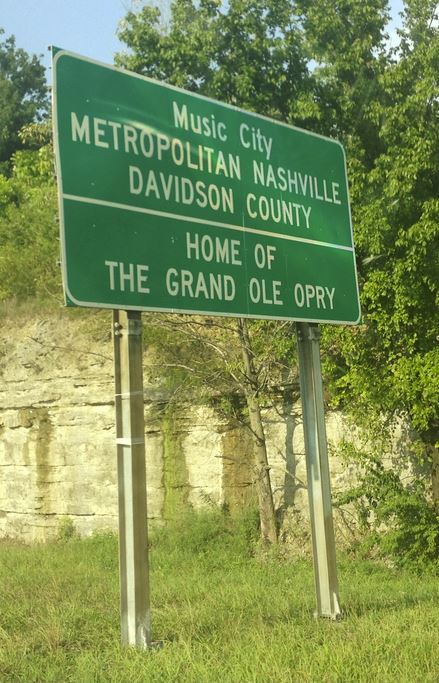quarta-feira, dezembro 03, 2025
Hoje é dia de ouvir country...
Postado por
Pedro Luna
às
01:00
0
bocas
![]()
Marcadores: country, Ferlin Husky, Gone, Grand Ole Opry, música, USA
Ferlin Husky nasceu há um século...
In the 50s and 60s, Husky's hits included "Gone" and "Wings of a Dove", each reaching number one on the country charts. He also created a comic outspoken hayseed character, Simon Crum; and recorded under the stage name Terry Preston from 1948 to 1953. In 2010, Husky was inducted into the Country Music Hall of Fame.
Postado por
Fernando Martins
às
00:01
0
bocas
![]()
Marcadores: country, Ferlin Husky, Grand Ole Opry, música, USA, Wings of a Dove
terça-feira, dezembro 03, 2024
Ferlin Husky nasceu há 99 anos
In the 50s and 60s, Husky's hits included "Gone" and "Wings of a Dove", each reaching number one on the country charts. He also created a comic outspoken hayseed character, Simon Crum; and recorded under the stage name Terry Preston from 1948 to 1953. In 2010, Husky was inducted into the Country Music Hall of Fame.
Postado por
Fernando Martins
às
09:09
0
bocas
![]()
Marcadores: country, Ferlin Husky, Grand Ole Opry, música, USA, Wings of a Dove
domingo, dezembro 03, 2023
Ferlin Husky nasceu há 98 anos
In the 50s and 60s, Husky's hits included "Gone" and "Wings of a Dove", each reaching number one on the country charts. He also created a comic outspoken hayseed character, Simon Crum; and recorded under the stage name Terry Preston from 1948 to 1953. In 2010, Husky was inducted into the Country Music Hall of Fame.
Postado por
Fernando Martins
às
09:08
0
bocas
![]()
Marcadores: country, Ferlin Husky, Gone, Grand Ole Opry, música, USA
sábado, dezembro 03, 2022
Ferlin Husky nasceu há 97 anos
In the 50s and 60s, Husky's hits included "Gone" and "Wings of a Dove", each reaching number one on the country charts. He also created a comic outspoken hayseed character, Simon Crum; and recorded under the stage name Terry Preston from 1948 to 1953. In 2010, Husky was inducted into the Country Music Hall of Fame.
Postado por
Fernando Martins
às
09:07
0
bocas
![]()
Marcadores: country, Ferlin Husky, Grand Ole Opry, música, USA, Wings of a Dove
sexta-feira, dezembro 03, 2021
Ferlin Husky nasceu há 96 anos
In the 50s and 60s, Husky's hits included "Gone" and "Wings of a Dove", each reaching number one on the country charts. He also created a comic outspoken hayseed character, Simon Crum; and recorded under the stage name Terry Preston from 1948 to 1953. In 2010, Husky was inducted into the Country Music Hall of Fame.
Postado por
Fernando Martins
às
09:06
0
bocas
![]()
Marcadores: country, Ferlin Husky, Gone, Grand Ole Opry, música, USA
quinta-feira, dezembro 03, 2020
O músico Ferlin Husky nasceu há 95 anos
In the 1950s and 1960s, Husky's hits included "Gone" and "Wings of a Dove", each reaching number one on the country charts. He also created a comic outspoken hayseed character, Simon Crum; and recorded under the stage name Terry Preston from 1948 to 1953. In 2010, Husky was inducted into the Country Music Hall of Fame.
in Wikipédia
Postado por
Fernando Martins
às
09:50
0
bocas
![]()
Marcadores: country, Ferlin Husky, Grand Ole Opry, música, USA, Wings of a Dove
sábado, novembro 28, 2020
O Grand Ole Opry faz hoje 95 anos!
The Grand Ole Opry is a weekly American country music stage concert in Nashville, Tennessee, founded on November 28, 1925, by George D. Hay as a one-hour radio "barn dance" on WSM. Currently owned and operated by Opry Entertainment (a division of Ryman Hospitality Properties, Inc.), it is the longest-running radio broadcast in US history. Dedicated to honoring country music and its history, the Opry showcases a mix of famous singers and contemporary chart-toppers performing country, bluegrass, Americana, folk, and gospel music as well as comedic performances and skits. It attracts hundreds of thousands of visitors from around the world and millions of radio and internet listeners.
In the 1930s, the show began hiring professionals and expanded to four hours. Broadcasting by then at 50,000 watts, WSM made the program a Saturday night musical tradition in nearly 30 states. In 1939, it debuted nationally on NBC Radio. The Opry moved to a permanent home, the Ryman Auditorium, in 1943. As it developed in importance, so did the city of Nashville, which became America's "country music capital." The Grand Ole Opry holds such significance in Nashville that it is included as a "home of" mention on the welcome signs seen by motorists at the Metro Nashville/Davidson County line.
Membership in the Opry remains one of country music's crowning achievements. Since 1974, the show has been broadcast from the Grand Ole Opry House east of downtown Nashville, with an annual three-month winter foray back to the Ryman since 1999. In addition to the radio programs, performances have been sporadically televised over the years.
in Wikipédia




